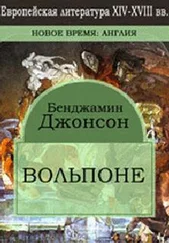Once aground we invariably observed the universal jogger’s silence, grim men at their exercise, charging in tandem from the house, until the lodger turned down Korial at the Forstinge precipice, electing a route he referred to with a string of numerals, a decision that roused in me an instant fatigue and anxiety, tempered by an ever-so-slight, and unspecified, sexual response. And off I ran after him.
Sometimes I chanced upon the lodger attempting the jog alone, usually in the cold early mornings when we were just discovering how much of our garden had been eaten by the woodland deer, who roved up every night to strip our land of its beard. I’d step into the brick-lined ivy patch to survey the waste and see the lodger trotting nervously along the roadway, studying his feet as if he was rehearsing tactical steps. In the evenings the lodger stood for long periods at the toilet, hands akimbo, before the water was stirred slightly by his weak drops of pee. Around the house, I did not like his hands, for he could barely hold his food and he trembled when he ate. In folklore, a trembling guest usually indicates that a demon is harbored inside his chest struggling to gnaw his way free, and that the guest is just a shell the demon has used to invade the house. I sometimes horse-stamped behind the lodger on the stairs so I could see his startled face in profile, one of the biggest faces there was. Saint Francis of Assisi, who loved all creatures, admitted that he loathed large-faced men, even as he prayed to God for more tolerance.
—
How odd that we can begeniuses and morons at once. Given everything we know in this world—some of it, or even most of it, oppressive and meaningless and distracting—we don’t always know who is alive and who is dead. There are creatures, at large in the world, whose status eludes us. In other words, where are they, and do they breathe? Is there finally any other question we might ask?
—
I believe in respectfor the dead. When it is warranted. When it is earned. Do you disagree? So let me not criticize he who is perhaps perished. The perished should enjoy only our praise and highest regard, unless the perished have maneuvered in the wrong, pursuing error, which leads to disgrace, regardless of the perished’s status among the living. I am fond of the perished, and do not wish to condemn them. Unless they are condemnable, and then the perished are worth at least several critical remarks. The perished are good people, usually. But when they are not, we would like to kill the perished a second time, or we would like to magically revive the perished and then sit on the perished with our bare bottoms so their last breaths come from deep in our asses. And maybe even then we would boil the perished until only their bones remained. From the bones comes a very fine powder. Very fine. You can nearly make something extraordinary with it, extraordinary and new. In this instance, let me be entirely fair, or even more than fair, just in case, so that someone who may now be dead will not be rendered before you and then reduced to dust: the lodger’s physique was stunning, wrapped in a skin so white one could almost call it clear. He was one of those young fellows whose white cap of hair made him seem all the more youthful, like a child in a silver fright wig. He was, too, apparently a brilliant mathematician, although he always made it clear that he loathed the professionalization of math, the corruption, the rampant mediocrity, the sort of sexual obviousness of the whole enterprise.
I will certainly miss the mathematicians. In the early days of their visits, when my father still loomed bodily over the property, I would watch from my window as they stopped to chat and laugh with the day laborers, sometimes pointing at our house, and my breath bounced from the glass back over my face, shrouding me in a steam that, while deeply foul and rank, had a sweetness that was unmistakably my own. It is a climate I would like to share with the detective, a homemade climate that, if only he could walk in it regularly, might afford him a far deeper sense of just what kind of people have managed to stay alive and accounted for here. Even if it’s just air, it’s our very own brew, and it’s been steeping around us for as long as we can remember.
—
There has been no talkof acquiring a new lodger. His room has been ribboned in yellow tape by the police, which my mother dusts so that the tape does not lose its shine. His board is paid through the year. No kin have emerged to siphon a refund from us. His blackened shoes are hardening in place outside his door. It is not clear to me why Paul has refused their inclusion in his missing persons collection, but now the shoes have stiffened into the floor, as though a leathery growth has arisen from the oak parquet, and even if I trip against them on the way to my room at night, the shoes do not yield their position.
—
It’s been three monthsand still no progress on the investigation. The detective is finished, he says. No more. He admits to a retreat of fascination on the part of his employers, a change in the subject. He brandishes his notebook and waves it over us, proving something about the inadequacy of its contents. A language of withdrawal is being used in his workplace, he says. Speech and behavior will no longer be brought to bear. The investigation is going dark.
“There are no suspects, then?” I ask.
“Sometimes the suspect and the victim are, shall we say…” A smile takes over his face and he coughs and appears to choke. He bends over and waves me away, but I am not going near him.
In the quiet speech I reserve for myself when stern talks are in order, when I have strayed from my own aims and softened in my resolve, I give the detective to know that, after all, he needs no title, and no official sanction, to visit us and puzzle over the family subtraction. It might be years and years later, when his visits here are classified merely as those of a hobbyist. He might simply be a long-retired gentleman who continues the courtesy of looking in on our diminished family, since he was once paid to wonder about what happened here, to leverage his advanced intellect onto the problem of the two missing men. Only politely will we, out of duty, remark on my father, sometimes fondly gazing at the photo that shows him anxiously clutching his high school diploma. Should not every family, missing men or not, enjoy its own detective, a professional to chase down and systematically address each puzzle that arises?
I further give him to understand, whispering now, that even if the official institutions are fetishizing progress and resolution, there is no need for our local group—beholden to absolutely no one or thing but our own refined style of courtesy—to suffer such a glaring failure of concern.
The detective remains folded over himself, coughing weakly, and I might be inclined to wonder if my syntax itself is acting as a diminisher. I think of the giant, in the Whitman poem, who spoke so forcefully that everyone around him was crushed small, so so small. The people in his life could only recover and grow back to full size if he remained absolutely silent, but the giant had trouble with this. As much as he loved his people, he could not keep from talking, however it wounded them.
It is only as the detective cheats his body toward the door, like a lump of meat moving under a rug, that my periphery is clouded with figures I know all too well: Rogerson, Mattingly, and my mother, who holds in her hand a tub of what I have come to know as a rather extraordinary ointment. The aroma that suddenly sharpens in my nose is unmistakable: here are people who will not let a man stand down.
Читать дальше











